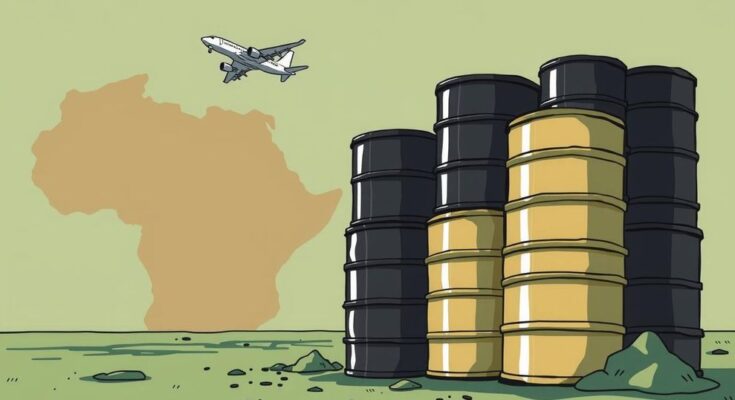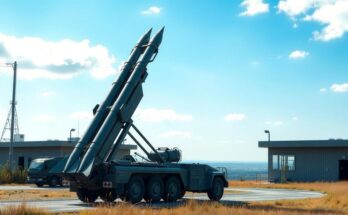Nicolás Maduro announced that U.S. deportation flights to Venezuela have been disrupted due to the revocation of Chevron’s oil license by the Trump administration. The decision has created tensions within the administration while causing significant economic harm to Venezuela. International leaders, including Ecuador’s President, criticized Maduro’s regime amidst the ongoing humanitarian crisis.
Nicolás Maduro, the President of Venezuela, stated that deportation flights from the United States have been impacted by the Trump administration’s recent revocation of Chevron’s oil license in Venezuela. Maduro highlighted that this disruption has affected planned returns of Venezuelan migrants, emphasizing the intention to welcome them home: “Now, we have a little problem because what they did has damaged the communications we had opened, affecting the trips we had scheduled to bring our migrant brothers back.”
The revocation, as reported by The Wall Street Journal, led to Venezuela’s warning to the U.S. about ceasing deportation flights. This situation has sparked internal conflict within the Trump administration over differing strategies towards Venezuela, with some advisors favoring cooperation for U.S. businesses while others advocate for greater sanctions against Maduro’s government.
The return of Venezuelan migrants had been a significant aspect of the Trump administration’s wider deportation strategy, particularly as Venezuelan nationals represent a considerable number of undocumented migrants in the U.S. The U.S. administration justified Chevron’s license revocation by citing electoral failures and a delay in deportation actions, with Secretary of State Marco Rubio criticizing the company’s financial support of the Maduro regime.
Reportedly, Republican lawmakers Mario Diaz-Balart, Carlos Gimenez, and Maria Elvira Salazar influenced this decision, indicating that they would withhold support unless action was taken against Chevron. Subsequently, Trump announced the decision post-budget deal, reflecting the political pressures on his administration.
The cessation of Chevron’s operations, which contributed to 250,000 barrels daily, is projected to result in over $3 billion loss in annual revenue for Venezuela and exacerbate inflationary issues. While Maduro criticized the U.S. decision, he steered clear of direct denunciations, framing it instead as a fight against imperialism rather than anti-American sentiment: “If it were up to me, Chevron would stay 100 more years.”
Ecuador’s President Daniel Noboa condemned Maduro’s actions, labeling them as indicative of authoritarian behavior that disregards the humanitarian crisis caused by the regime, stating, “this is how authoritarian and extremist regimes act, without caring about the fate of those fleeing the crisis they themselves caused.”
In conclusion, Nicolás Maduro highlighted the adverse effects on deportation flights resulting from the U.S.’s revocation of Chevron’s oil license. This decision has caused internal conflict within the Trump administration, raising concerns about the humanitarian implications for Venezuelan migrants. The economic repercussions for Venezuela are significant, and both domestic and international leaders are weighing in on the consequences of Maduro’s governance. The situation remains complex, intertwining political interests and humanitarian crises.
Original Source: www.latintimes.com




